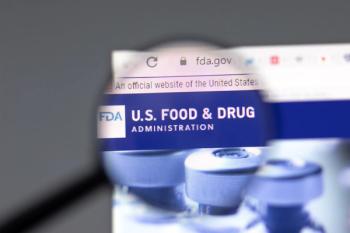
- Drug Topics September 2020
- Volume 164
- Issue 9
Prevent Medication Errors in Autoimmune Disease
Pharmacists can play an important role in educating patients about autoimmune drugs to prevent medication errors.
Pharmacists can play an important role in educating patients about autoimmune drugs to prevent medication errors.
Autoimmune diseases affect more than 24 million individuals in the United States, and the most common conditions are type 1 diabetes, multiple sclerosis (MS), lupus, inflammatory bowel disease (IBD), and rheumatoid arthritis (RA).1 At least 80 known autoimmune diseases exist, and a plethora of therapies can be used to manage symptoms.1 Pharmacists can play a vital part of patient care by educating individuals about their autoimmune therapies to prevent drug-related problems at home. Evidence demonstrates that pharmacists can also decrease medication errors after hospital discharge through transition of care interventions and reduce emergency department visits.2
Autoimmune Drug Medication Errors and Counseling Pearls
Methotrexate
According to the National Coordinating Council for Medication Error Reporting and Prevention, “a medication error is any preventable event that may cause or lead to inappropriate medication use or patient harm while the medication is in the control of the health care professional, patient, or consumer.”3 Methotrexate (Rheumatrex) is prescribed for RA and psoriasis, and it is critical to ensure proper dosing and patient education for this medication to prevent adverse events.4 Dosing of methotrexate for RA or psoriasis is once weekly as low-dose therapy, but is generally administered daily when used for cancer treatment.4
Harmful or fatal errors with low-dose oral methotrexate have been reported to the Institute for Safe Medication Practices (ISMP), with the most common involving accidental daily dosing intended for weekly administration.4,5 Therefore, ISMP considers methotrexate a high-alert medication in both the hospital and community settings.4-6 Patients should receive both verbal and printed instructions emphasizing the importance of once per week dosing for methotrexate prior to hospital discharge. ISMP’s ConsumerMedSafety.org website includes a free educational handout.5,6 Pharmacies can also dispense methotrexate as a weekly dose pack to prevent administration errors.4,6 Patients should pick a day of the week that they will be taking methotrexate, and the pharmacy can include this with the instructions.6
NSAIDs
Nonsteroidal anti-inflammatory drugs (NSAIDs) are often used to reduce pain associated with RA or lupus.7 Educating patients to read the OTC product’s Drug Facts label is extremely important to ensure they are not taking multiple NSAID products, which can lead to an increased risk of gastrointestinal bleeding.7 Corticosteroids are generally used for RA, IBD (short term), and lupus. Patients should avoid abruptly stopping therapy if they have been taking these medications for 3 or more weeks as they need to be tapered slowly to prevent disease flare-ups and adrenal insufficiency.8
Other Common Autoimmune Therapies
Levothyroxine (Synthroid) is commonly used to treat hypothyroidism, which can be caused by the autoimmune condition Hashimoto disease. Patients should be counseled to take levothyroxine on an empty stomach 30 to 60 minutes before breakfast for optimal absorption.9 Also, certain medications including calcium, antacids, and iron can bind to levothyroxine and potentially reduce the efficacy, so they should be separated by at least 4 hours.9
Growing evidence suggests that hydroxychloroquine is not effective for the coronavirus disease 2019 (COVID-19) and could be harmful.10 However, hydroxychloroquine is FDA approved for the treatment of lupus and RA and has demonstrated efficacy for these conditions. The American Heart Association along with other organizations have emphasized the importance of identifying potential drug interactions that could cause cardiovascular adverse events (eg QTc prolongation, fatal arrhythmias) in patients with COVID-19, especially with the combination of hydroxychloroquine and azithromycin.10 These risks also apply to those using hydroxychloroquine for the FDA-approved indications, and pharmacists should educate patients about these cardiac effects.
Insulins used for type 1 diabetes are considered high-alert medications, and it’s important that patients know their dose to prevent administration errors. The U-500 insulin is concentrated and contains 5 times more insulin per ml than standard insulin.11 Patients should also be cautioned about severe worsening of MS after stopping the medication fingolimod (Gilenya). It is important for patients to consult their pharmacist and physician prior to discontinuing the therapy.12
References:
- Autoimmune diseases. National Institutes of Health. Updated May 6, 2020. Accessed July 26, 2020. niehs.nih.gov/health/topics/conditions/autoimmune/index.cfm
- De Oliveira GS, Castro-Alves LJ, Kendall MC, McCarthy R. Effectiveness of pharmacist intervention to reduce medication errors and health-care resources utilization after transitions of care: a meta-analysis of randomized controlled trials. J Patient Saf. Published online June 30, 2017. doi: 10.1097/PTS.0000000000000283
- About medication errors. National Coordinating Council for Medication Error Reporting and Prevention. Accessed July 30, 2020. nccmerp.org/about-medication-errors
- Grissinger M. Severe harm and death associated with errors and drug interactions involving low-dose methotrexate. P T. 2018;43(4): 191-248. https://www.ncbi.nlm.nih.gov/pmc/articles/PMC5871236/
- 2020-2021 ISMP targeted medication safety best practices for hospitals. ISMP. Accessed July 30, 2020. ismp.org/sites/default/files/attachments/2020-02/2020-2021%20TMSBP-%20FINAL_1.pdf
- High-alert medications-methotrexate. ConsumerMedSafety.org. Accessed July 30, 2020. consumermedsafety.org/tools-and-resources/medication-safety-tools-and-resources/high-alert-medications/methotrexate-rheumatrex-trexal
- Rheumatoid Arthritis Treatment. Johns Hopkins Arthritis Center. Accessed July 31, 2020. hopkinsarthritis.org/arthritis-info/rheumatoid-arthritis/ra-treatment/
- Chang-Miller A. Prednisone withdrawal: why taper down slowly? June 19, 2020. Accessed July 31, 2020. mayoclinic.org/prednisone-withdrawal/expert-answers/faq-20057923
- Levothyroxine (oral route). Mayo Clinic. Updated February 1, 2020. Accessed August 1, 2020. mayoclinic.org/drugs/levothyroxine-oral/drg-20072133?p=1
- Roden DM, Harrington RA, Poppas A, Russo AM. Considerations for drug interactions on QTc in exploratory COVID-19 treatment. Circulation. 2020;141(24):e906-e907. doi: 10.1161/CIRCULATIONAHA.120.047521
- Humulin R U-500. ConsumerMedSafety.org. Accessed August 1, 2020. ismp.org/sites/default/files/attachments/2018-11/u-500-insulinfinal.pdf
- FDA warns about severe worsening of multiple sclerosis after stopping the medicine Gilenya (fingolimod). FDA. November 20, 2018. Accessed August 1, 2020. fda.gov/drugs/drug-safety-and-availability/fda-warns-about-severe-worsening-multiple-sclerosis-after-stopping-medicine-gilenya-fingolimod
Articles in this issue
over 5 years ago
Boston Medical Center Reduces Opioid Use in Surgical Patientsover 5 years ago
A Partnership to Optimize Medication Use and Patient Outcomesover 5 years ago
Biosimilars May Lead to Improved Competition and Lower Costsover 5 years ago
A Look at the Year in Genericsover 5 years ago
The Rise of AIover 5 years ago
Adult Pneumonia Management and Preventionover 5 years ago
Medication Therapy Managementover 5 years ago
The Pharmacist’s Role in Generic SubstitutionNewsletter
Pharmacy practice is always changing. Stay ahead of the curve with the Drug Topics newsletter and get the latest drug information, industry trends, and patient care tips.























